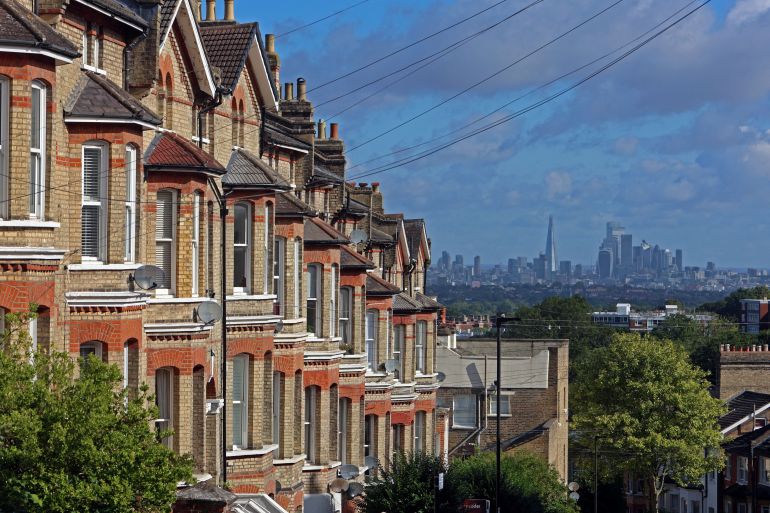UK house prices drop by most since 2009 amid rising interest rates
The UK housing market sees weak activity caused by rising interest rates, pushing mortgage rates above 6 percent for home buyers and existing mortgagors looking to refinance.

British house prices fell by the most since 2009 in the 12 months to July, according to mortgage lender Nationwide, as the drag from rising interest rates on the housing market intensified.
Compared with July last year, the average house price was down by 3.8 percent after a 3.5 percent annual fall in June, Nationwide said on Tuesday.
Keep reading
list of 4 itemsUS home sales drop to more than 12-year low in January
Portugal’s worsening housing crisis hits a diverse neighbourhood
UK house prices fall for the first time in more than a decade
The reading was in line with the consensus from a Reuters news agency poll of economists.
House prices fell 0.2 percent month-on-month, Nationwide said.
The survey chimed with other gauges of the housing market that point to weak activity caused by rising interest rates which have pushed mortgage rates above 6 percent for home buyers and existing mortgagors looking to refinance.
Nationwide chief economist Robert Gardner said the typical first-time buyer with a deposit of 20 percent would see mortgage payments at current rates account for 43 percent of their take-home pay – up from 32 percent a year ago.
“This challenging affordability picture helps to explain why housing market activity has been subdued in recent months,” Gardner said.
More rate hikes
The Bank of England looks on course to raise its Bank Rate to 5.25 percent from 5.0 percent on Thursday, according to economists polled by Reuters, which would mark the highest cost of borrowing since 2008.
BoE data on Monday showed a surprise jump in mortgage approvals in June, although most economists think a downturn in the housing market has further to run – with the bulk of the BoE’s rate hikes since late 2021 yet to feed into the economy.
Still, Gardner said a relatively soft landing for the housing market was achievable.
“While activity is likely to remain subdued in the near term, healthy rates of nominal income growth, together with modestly lower house prices, should help to improve housing affordability over time – especially if mortgage rates moderate once bank rate peaks,” Gardner said.